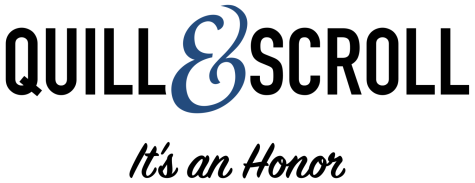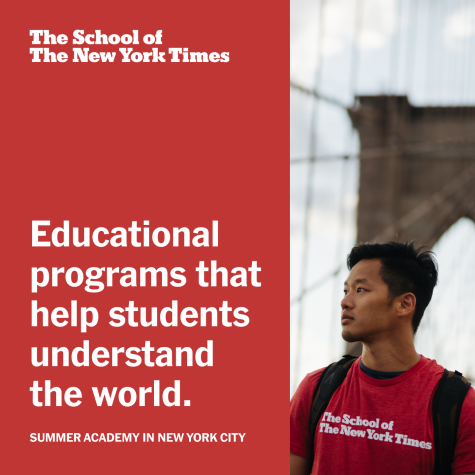Feb. 24, 2024
Our past three editions
Feb. 10, 2025 Blood donations • Immigration • Media in the Trump administration
Feb. 3, 2025 BMI • Power of journalism • CNN
Jan. 27, 2025 TikTok • Wildfires • Oscars
THE LEAD
The case for abandoning your smartphone
Examine the benefits, harms of screen use
A smartphone does a lot for you. It captures precious moments in photos, it makes sure you don’t get lost going to the grocery store, it keeps you connected to your friends. But for some, it can also be a time suck — a quick scroll on social media can quickly snowball into wasted hours. Enter, a “dumb phone,” as anti-tech activist August Lamm calls it in a recent piece for the New York Times.
Three years ago Lamm gave up her smartphone for a flip phone that is limited to mainly calling and texting. In the guest essay for the Times, Lamm argues for an intentional downgrade of the technology we carry in our pockets. Lamm isn’t the only person doing this, a recent article for Business Insider explores how one parent made the choice to give their teenager a “dumb phone.”
What you can do —
There are so many stories embedded in students relationships with their screens — and there is often scientific research to flesh out the reporting. One way into this topic is to talk to experts, ask what worries them about phone use by children and teenagers. Reach out to a local psychologist specializing in teens concerning the impact on mental health. Ask students and staff at your school what their screen time is and if they’ve ever tried to change it. Reach out to parents to see how parenting has been changed by the ubiquity of smart phones.
Your school may also have a cell phone use policy — talk to administrators and teachers about what it is and if it is working. This reporting can be supplemented with expert voices as well as anecdotes from your fellow students.
This could even be a series, starting with screen time, covering social media habits and benefits of smartphones and ending with a community survey about phone use, for example.
Noteworthy
Coffee might actually have some benefits, but only within reason
Check in on caffeine consumption habits in your school
People who consume a moderate amount of coffee might actually see lower rates of cardiovascular disease and death, research shows. The evidence for such health effects is strong, CNN reported, with research over the last several decades showing that moderate consumption of coffee can lower the risk of diseases like heart disease, diabetes and certain cancers.
At the same time, a lot about coffee is not known — there are theories about why coffee might do some good for drinkers, but little is for sure. It is also possible to drink too much coffee. According to CNN the concern with high levels of coffee consumption is caffeine intake. Too much caffeine can lead to heart palpitations, anxiety and difficult sleeping.
What you can do —
Whether or not students in your school are drinking coffee, the odds they are drinking some sort of caffeinated beverage are high. Energy drinks, for example, often have three to four times the amount of caffeine of one shot of espresso. Energy drinks are often easy to find and come in a wide variety of appealing flavors. Your school store may even sell some — check to see if there are state or local laws prohibiting the sale of caffeinated beverages during the school day.
Reporting on caffeine consumption in your community can take a variety of shapes, including community surveys and data visualization. Reach out to local experts about the effects of caffeine on youth. Also talk to students and staff about their caffeine consumption habits.
What’s viral
Mississippi judge orders newspaper to remove editorial
Discuss press freedom protections during Scholastic Journalism Week
Last week a judge in Mississippi issued a temporary restraining order requiring the Clarksdale Press Register to remove a critical editorial from its website. The city of Clarksdale petitioned for the restraining order and says the comments in the editorial were defamatory, the Clarion Ledger reported.
The editorial published by the Clarksdale Press Register criticized the city’s mayor for holding a city meeting about a proposed tax on marijuana, alcohol and tobacco products without alerting the media, the Washington Post reported.
The restraining order alarmed press advocates and gained traction on social media after a First Amendment lawyer at the Foundation for Individual Rights and Expression shared it on X. In his thread, Adam Steinbaugh unpacks the legal precedent and foundation that surrounds this case.
What you can do —
Coming right before Scholastic Journalism Week, this case provides a way into a discussion about press freedom protections in the United States, which could easily include libel law and Times vs. Sullivan. This could be a publication-wide lesson on the legal basis of free speech or a discussion about what free speech means in your communities and lives. This could also be expanded to a school-wide media literacy and free speech education campaign.
This can serve as a great reminder to educate students concerning their access to public meetings, such as school board or city council. Especially since student media in some communities is the only source of local news.
IT’S AN HONOR
It’s always membership season
Don’t forget you can nominate members year-round
It’s time to beat the spring rush and nominate students for membership, order pins, cords and other Quill and Scroll materials and memorabilia.
We haven’t changed the ordering process from last year. For those wanting to ditch the paper version, you just need to select the form based on how you would like to pay. We have one version for credit card and another version for check or purchase order. (We’ve added buttons for ease of finding these.) As usual, credit card payments are charged $4.49 per order for processing.
While you’re ordering, don’t forget to include any cords and other Quill and Scroll materials and memorabilia.
If your initiation is the week of March 17 now is the time to order!
Members-only area reminder
If you haven’t accessed our members-only area, we encourage you to do so. While we hope to expand this feature, you can find bell ringers, lesson plans and a gallery of our News Media Evaluation Gallup Award winners.
To access, please visit our new member login page. Your credentials are in an email from [email protected]. Please check your spam folder and if you still don’t see it, reach out to us at [email protected] and we will help you troubleshoot!
When you log in, please accept cookies via the popup on the bottom of the page. This will limit the number of times you have to login!
Members-only area bell ringer highlight
This bell ringer addresses several common mistakes made in copy. Take a few minutes to remind your students of common copy errors and how to prevent them.
PSJA Journalism Contest open, due March 7
Q&S and Private School Journalism Association set up portfolio contest
The PSJA Journalism Contest, co-sponsored by Quill and Scroll, seeks to honor the best journalism produced by private and independent school students. It is a “portfolio” contest, one that seeks not to reward single stories, but a pattern of excellence over the course of a year.
Other than Editorial Leadership, work produced for the contest should have been published in a news publication — in print or online — or a yearbook between March 1, 2024 and March 6, 2025. Deadline for entries will be Friday, March 7. An awards ceremony will occur at the JEA/NSPA National High School Convention in Seattle.
For PSJA members, the cost for your school is $20 per entry. Non-members pay $25 per entry. To become a member of PSJA, email PSJA Director David Cutler ([email protected]) and sign up for the PSJA newsletter.
Make sure to include either your credit card payments or check or purchase order when you enter. The link provided on the site will take you directly to the credit card or check/purchase order page for the order. The PSJA category payment option is at the bottom of the page.
If you are interested in entering the contest, please see our website.
Deadline approaches for 2025 Vanessa Shelton Chapter of the Year
Has your chapter been active in Quill and Scroll this year? If so, it’s time to apply for the Chapter of the Year.
Chapters must have initiated members in each of the past three years.
Applications are free and winners will receive a plaque, $250 for the classroom, four free memberships and honor cords and one member spot on our Student Advisory Board.
The deadline is April 18 and the winner will be announced mid-May. The application form is on our website.
Student Journalist Impact Award
Has your reporting made a difference in your community? Apply by March 15
The Student Journalist Impact Award recognizes a secondary school student (or a team of students who worked on the same entry) who, through the study and practice of journalism, has made a significant difference in his/her/their own life, the lives of others, the school he/she/they attends and/or the community in which he/she/they resides.
This award is co-sponsored by the Journalism Education Association and the Quill and Scroll International Honorary Society for High School Journalists. Quill and Scroll became a co-sponsor in 2018.
Benz Scholarship
Applications open for $250 adviser award
Quill and Scroll will award the $250 Lester G. Benz Scholarship to an adviser who undertakes a professional development activity over the summer or in the 2025-26 academic year.
The award can be used to attend a National High School Journalism Conference, to pay for tuition for a university course in a relevant subject area, or for a summer workshop, the JEA Summer Advisers Institute or a local summer workshop in your state, to name a few.
Applications are now being accepted. The deadline is April 11.
The award is named after former Quill and Scroll Executive Director Lester G. Benz.
Student Scholarship applications are also now open and will be due May 9.
Spring convention registration opened Jan. 28
Join us in Kansas City for the JEA/NSPA National High School Journalism Convention. This year’s convention will be in Seattle. Registration is open and the hotel link is available to all registrants. Join us for “SEA it to believe it” at the JEA/NSPA spring convention April 24-26.
When you’re there, please stop by our booth! We’d love to see you!
Upcoming Weekly Scroll pause dates
We will pause the Weekly Scroll during the weeks of March 10, March 24, April 21 and April 28 since we will be at conventions when we normally would amass the Scroll.
Some advisers and students have found linking to our Weekly Scroll page beneficial.
Thank you for understanding.
Chapter Shoutout needs your help
Make sure to share what you’re doing (or have done) with us! We would love to feature your chapter here.
Please use this Google form or email us at [email protected]. Please include a small description and photo of the event.
School of the New York Times Summer Academy opportunity
We are excited to announce our partnership with the School of the New York Times. Students from schools with a Quill and Scroll Charter can receive $500 off enrollment in the School of the New York Times Summer Academy.
Summer Academy is open to high school students (grades 10-12 and Graduating Seniors based on the grade the student is entering in the Fall 2025 school year). Students must be 15 years old by the first day of their term. All students applying to Summer Academy for the first time are required to complete an online application. Returning students do not need to reapply.
The round 1 deadline is Feb. 26. Please see this site for application and more details. The School of the New York Times will host a Virtual Admissions Information Session from 4:30-5:15 p.m. CDT March 18.
Opportunity from the Freedom Forum
The 2025 Al Neuharth Free Spirit and Journalism Conference June 22-27, 2025 provides 51 students (one high school junior from each state plus the District of Columbia) with an all-expenses-paid program that includes panel conversations with journalists, newsroom visits, a chance to meet students and industry leaders who share a passion for news, and a unique Washington, D.C. experience.
Participants also receive a $1,000 college scholarship and ongoing support from a community of more than 1,500 alumni. Students build their skills, grow their network and get a head start on their future.
Apply by March 23 at FreeSpiritJournalism.org.
Just a thought
Happy Scholastic Journalism Week!
Congratulations to the schools celebrating — and especially to those named First Amendment Press Freedom Award winners.
While we celebrate Scholastic Journalism this week, and Student Press Freedom Day on Thursday, it’s important to take a moment to reflect on the importance of student media and the role of the First Amendment.
Quill and Scroll values the First Amendment, which is why we signed on with at least 40 other organizations to the Society of Professional Journalists joint statement last week concerning government attacks on press freedom.
We believe a free press is essential to democracy, and the statement condemns actions penalizing journalists and their independent reporting on the activities of the government. As the statement reads, “When leaders try to silence reporters through intimidation, legal threats and denial of access, they are not protecting the country; they are protecting themselves from scrutiny.”
Attacks on national media may feel removed from scholastic journalism in some ways, but the professional media outlets serve as an example for student journalists. When student journalists see members of the professional media fettered by the government, then they may not feel as empowered to fight their own censorship battles at their own schools.
The current media landscape makes it more important than ever to discuss the role of the First Amendment in democracy today.
Take time this Scholastic Journalism Week — and specifically Student Press Freedom Day — to discuss the role of the First Amendment in democracy today. If you are looking for activity ideas, here are some Quill and Scroll has complied:
- Student press protections: What is the status of the free press in your school and state? Are you one of the 18 states with laws that protect student journalists? What are the policies and guidelines at your school? What is the role of the student press? This could be a great activity in preparation for or following Student Press Freedom Day.
- Why Journalism Matters: Why does journalism matter? Why is it more important than any time in recent history to make sure we cover our local communities? (Hint: many cuts to local journalism have occurred nationwide.)
- Mission of journalism: This podcast by Audie Cornish examines not only objectivity, but also public trust and the “shutting out” of news. The podcast includes a journalist talking about covering former President Donald Trump.
- Constitution Day: This beginning-of-the-year activity can help you and your students learn about the First Amendment.
The Journalism Education Association has a variety of lesson plans on its website and the Student Press Law Center has a variety of opportunities on its website.
— Lori Keekley






